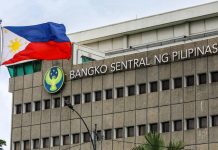
MANILA – Research group IBON Foundation has claimed that the Rodrigo Duterte administration only produced 81,000 jobs in two years.
Citing data from the Philippine Statistics Authority, IBON said the number of employed Filipinos only increased by 162,000 from 41 million in 2016 to 41.2 million in 2018.
This brings the annual job creation to only 81,000 from 2017 to 2018 – the lowest level of jobs created among post-Marcos administrations, the research group said.
“The Duterte administration needs to stop downplaying slowing growth and hyping it as still among the fastest in the region and the world because the growth is becoming more jobless than ever,” IBON executive director Sonny Africa said.
IBON also scored the second year of “slowing growth” under the Duterte administration.
The PSA reported a 6.2 percent annual growth in the country’s gross domestic product (GDP) for 2018, lower than government’s revised growth target of 6.5-6.9 percent for the year.
Earlier, the government cited slowing agriculture and high inflation as among the main factors pulling back growth, while the main drivers were growth in construction, and trade and repair of motor vehicles, motorcycles, personal and household goods.
“Growth is slowing most of all because of the economy’s unsound fundamentals in backward agriculture and shallow industry,” Africa said in a report posted on January 24.
IBON said the administration seems to have little interest in reversing the trend of slowing agricultural output as it only grew by 0.8 percent in 2018 from 4 percent in 2017.
“For example, the P49.3 billion agriculture department budget for 2019 proposed by Congress is P1.4 billion less than the P50.7 billion in 2018 (in equivalent cash-based terms),” Africa said.
Africa also noted that manufacturing growth slowed to 4.9 percent in 2018 from 8.4 percent the year before, which is the slowest since the 4.7 percent growth in 2011.
He said that this is due to weaker demand in domestic consumption and weaker exports amid the global economic slowdown.
Manufacturing also remains shallow for being low value-added, foreign-dominated, and dependent on foreign capital and technology, he said.
“Yet remittances are slowing, exports are falling, and interest rates are rising. The real estate and consumer spending booms are also petering out,” Africa said.
Growth in overseas remittances slowed from 5.0 percent in 2016 to 4.3 percent in 2017 to just 3.1 percent in the first 10 months of 2018, the IBON executive director said.
Africa also cited the decline in exports growth and rising interest rates.
“Exports growth increased from 11.6 percent in 2016 to 19.5 percent in 2017, but then fell to 11.5 percent in 2018. Meanwhile, the benchmark overnight reverse repurchase (RRP) rate rose steeply from 3.0 percent in 2017 to 4.75 percent by end-2018, reversing the decade-long general decline in interest rates,” he said.
Moreover, he said that household consumption spending markedly slowed from 7.1 percent growth in 2016 and 5.9 percent in 2017 to just 5.6 percent in 2018.
“The real estate boom is also tapering with 2016 growth of 8.9 percent in real estate, renting and business activities declining to 7.4 percent in 2017 and falling further to just 4.8 percent in 2018.”
On the other hand, “Rising government spending and its infrastructure offensive haven’t been enough to offset the reliance on waning external factors.
“The administration’s efforts to stimulate growth to its 7-8 percent target with even more spending, are not going to be enough amid high disguised unemployment, low incomes, and the global slowdown this year,” Africa said.
Global GDP growth is estimated to slow from 3.1 percent in 2018 to 3.0 percent this year, he claimed.
“Government continues to ignore telltale signs of an economic downturn and deceive Filipinos with its rosy picture of the economy. The sooner the administration admits the failure of its neo-liberal policies, the sooner measures that will spur domestic industries and benefit the Filipino people can be implemented,” Africa said. (GMA News)



